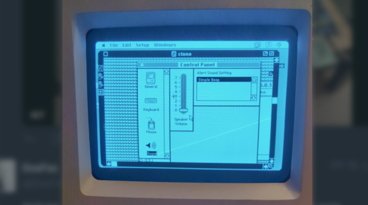Snow Leopard's Grand Central, Open CL boost app by 50%
As reported by the French site HardMac, MovieGate developer Christophe Ducommun found his app jumped from 104 frames per second encoding under Leopard to 150 fps performance on the same hardware under Snow Leopard after implementing support for the new features.
Grand Central Dispatch helps developers efficiently maximize multiple processors available on the system, and OpenCL enables applications to make use of the latent power within available video card GPUs.
In addition to an overall performance boost in output, Ducommun also reported CPU utilization for MPEG-2 encoding under the ffmpeg open source library leap from 100% to 130% on his quad core Mac Pro, indicating a significant improvement in tapping its multicore potential.
At the same time, decoding operations dropped CPU utilization from 165% to 70% under Snow Leopard because a significant amount of the work could be delegated to the machine's GPU.
The observations illustrate how Snow Leopard's Grand Central Dispatch and OpenCL combine to improve performance both in raw computing power and in increased use of otherwise idle hardware.
In particular, it indicates the potential for GPU delegation to speed things up while reducing the load on the CPU for some operations, particular video playback. The battery life of mobile devices stand to benefit from such optimizations.
 Prince McLean
Prince McLean







 Amber Neely
Amber Neely
 Thomas Sibilly
Thomas Sibilly
 AppleInsider Staff
AppleInsider Staff
 William Gallagher
William Gallagher
 Malcolm Owen
Malcolm Owen
 Christine McKee
Christine McKee










55 Comments
Sounds awesome.
Be good to hear (or see) this outcome for a number of other apps too...
Maybe AppleInsider could keep a list online?
This type of thing is the wave of the future. GPUs are quite powerful chips too, so I'm glad to see this.
I was encoding a video file today on my PC (with specs a little better than the lowest Mac Pro, including the Xeon processor) and with CUDA functions enabled along with multi-threading, I was amazed at how fast this thing cranked through video! And that's just on *Gasp* Vista! If my PC can go that fast, I imagine the Mac must be....
... well, probably about the same speed, maybe a little faster. But still, it should be amazingly blinding fast too!
I've seen pure compute demos using scientific mapping software that resulted in a 50X speed increase. Many algorithms aren't suited to massive-parallelism but when they are you can see huge gains. Apple have done some seriously good work in Snow Leopard that should attract a lot of previously ambivalent developers.
Ducommun also reported CPU utilization for MPEG-2 encoding under the ffmpeg open source library leap from 100% to 130% on his quad core Mac Pro, indicating a significant improvement in tapping its multicore potential.
Not close to the 400% it could be though. It would be nice if video compressors encoded groups of pictures in separate threads in parallel, then just cached the output so it would write to file in order.
The OpenCL speedup was quite low considering even the 9400M can rival an 8-core Mac Pro CPU in some cases.
I'm sure it will take time to get to grips with these technologies in the best ways though and it's good to see real-world uses.
... Ducommun also reported CPU utilization for MPEG-2 encoding under the ffmpeg open source library leap from 100% to 130% on his quad core Mac Pro, ...
Sounds good, but Handbrake on my Mac Pro uses between 500% and 750% of the CPU. Unless we are talking different things, 130% seems low.